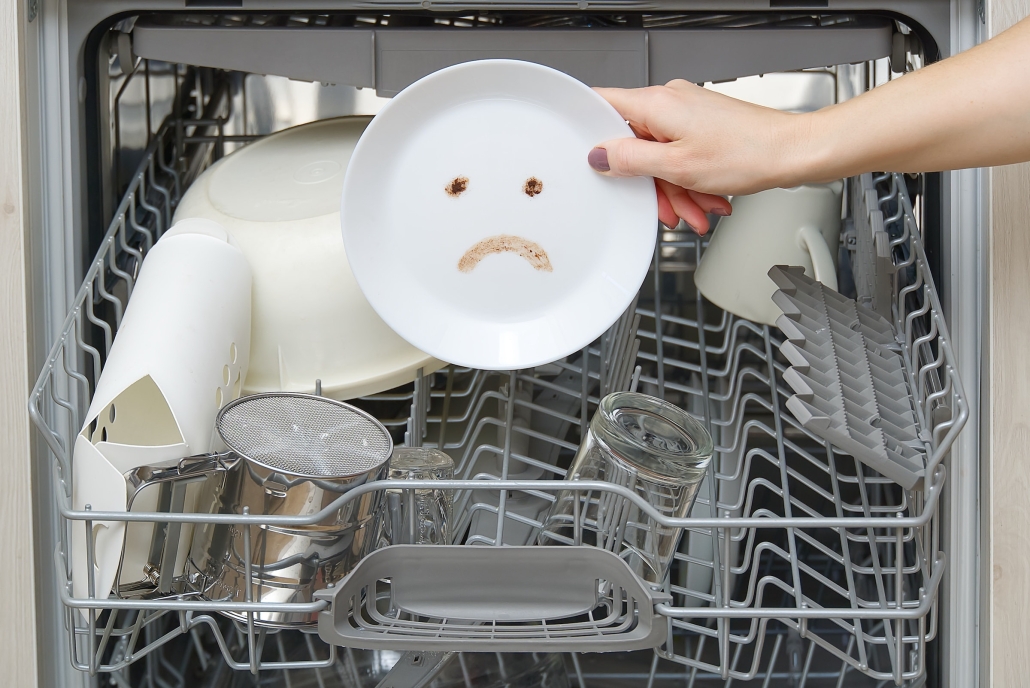Clogged Dishwasher and Garbage Disposal?
A Kitchen Nightmare You Can Fix
Clogged dishwasher — A smooth-running kitchen is one of the greatest conveniences of modern life. However, when your dishwasher and garbage disposal clog, that convenience quickly turns into an overwhelming problem. Dirty dishes pile up, the sink fills with murky water, and unpleasant odors make it feel like your kitchen is staging a revolt against you.
But don’t worry—at Poole’s Plumbing, we understand how frustrating this can be. Below, we’ll explain what causes these issues and what you can do to solve or prevent them.
Why Do Dishwashers and Garbage Disposals Clog?
Your dishwasher and garbage disposal are critical to your kitchen’s functionality. However, they share a typical plumbing system; with that being said, a clog in one can easily affect the other. Here are the main culprits behind these clogs:
1. Food Residue and Grease Buildup
With the wonderful invention of the Garbage disposal, we have the perfect invention designed to handle small food particles, but putting too much down the drain or grinding overly fibrous or starchy materials can overwhelm it. Additionally, pouring grease, oil, or fat into the drain causes it to harden over time, narrowing your pipes and creating blockages.
2. Improper Dishwashing Habits
Dishwashers often struggle when food debris is left on plates and utensils. Tiny food particles can accumulate in the filter or drain, eventually leading to a clogged connection between your dishwasher and the garbage disposal.
3. Broken or Malfunctioning Garbage Disposal
If your garbage disposal isn’t malfunctioning, food particles may not be ground down properly. These larger pieces can block your pipes or flow back into the dishwasher drain, leaving sticky, dirty water in your machine.
4. Blocked Air Gap or Drain Hose
The air gap or drain hose connecting your dishwasher to your plumbing can also be a source of clogs. A blockage in this component can force water to flow back into the dishwasher or cause a sluggish drainage process.

Signs You’re Dealing with a Clog
How can you be sure a clog is the issue? Watch for these common signs of trouble:
- The dishwasher isn’t draining correctly: If water starts to pool at the bottom of your dishwasher after running a cycle, a clog might be to blame.
- Foul odors: Bacteria can breed quickly in stagnant water or clogged food particles. You may notice a lingering smell from the sink or inside your dishwasher.
- Strange noises: Grinding or gurgling sounds from your garbage disposal or dishwasher pipes are warning signs.
- Water backup: Water may back up into the sink or dishwasher, sometimes causing it to overflow.
How to Fix a Clogged Dishwasher and Garbage Disposal
Acting quickly is essential to dealing with a backed-up dishwasher or garbage disposal. Here’s how you can approach the issue:
1. Turn Off the Power
Safety comes first. Before attempting any fix, unplug your dishwasher and garbage disposal, go to the primary source, locate the circuit breaker, and turn it off to eliminate the risk of electrical accidents.
2. Check the Garbage Disposal
Run your garbage disposal to see if it clears the clog. Suppose it doesn’t inspect it for any visible blockages. Never use your hands directly. Instead, use tongs or pliers to remove lodged food particles safely.
If the disposal isn’t working, hit the reset button on the underside of the unit.
3. Clean the Dishwasher Filter
Most dishwasher models have a filter at the bottom to catch food particles. Remove and rinse the filter under warm, soapy water. Clear away any buildup to restore proper drainage.
4. Inspect the Drain Hose
When inspecting, check the drain hose for kinks or blockages. Disconnect it (carefully following the manufacturer’s instructions) and flush it with warm water.
5. Use a Natural Drain Cleaner
If food or grease residue contributes to your problem clog, try pouring a mixture of baking soda and vinegar down the drain. Allow it to sit for 10-15 minutes before flushing with hot water. However, try avoiding using chemical drain cleaners, which can damage your plumbing.
6. Call a Professional
If you’ve tried these steps without success, it may be time to hire a professional plumber. Clogs located more deeply in the plumbing system or caused by damaged components require expert attention to resolve without causing further issues.
How to Prevent Future Clogs
The best way to deal with clogs is to avoid them altogether. Follow these tips to keep your dishwasher and garbage disposal running smoothly:
- Scrape large food scraps into the trash before rinsing or loading dishes into the dishwasher.
- Avoid putting fibrous or starchy foods (like celery, potato peels, and coffee grounds) down your garbage disposal.
- Running hot water down the drain for a few seconds after using your garbage disposal to clear residue.
- Remember to schedule routine maintenance to address minor issues before they become big problems.
Why Choose Pooles Plumbing?
Clogged drains and appliances can be a kitchen nightmare, but you don’t have to tackle it alone. At Pooles Plumbing, we pride ourselves on providing reliable, professional, and friendly service to get your kitchen back in working order quickly.
With years of experience, we’ll fix the issue and educate you on preventing future headaches. Plus, we’re available 24/7 for emergencies because we understand that plumbing problems don’t always wait for a convenient time.
If you’re struggling with a clogged dishwasher or garbage disposal, don’t hesitate to call us at Pooles Plumbing or book a service online.
Your dream kitchen starts with a well-running dishwasher and garbage disposal—leave it to the pros to keep it that way.
Contact Pooles Plumbing today and say goodbye to clogged drains for good.





